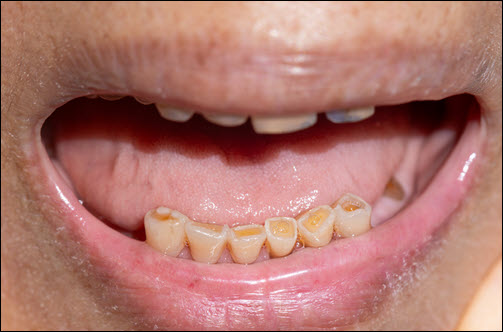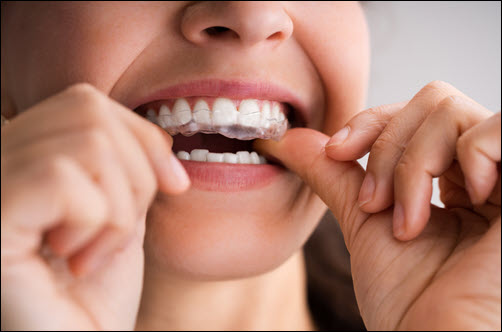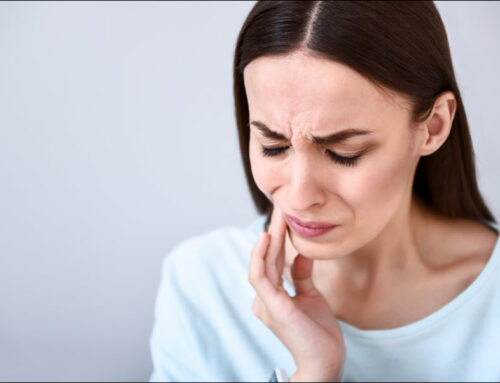Bruxism is the grinding or clenching of teeth, often occurring during sleep. It causes tooth damage, jaw pain, and headaches. Stress, misaligned teeth, and sleep disorders increase the risk of bruxism. Many people are unaware of their grinding habits until symptoms appear. Early detection prevents long-term tooth wear and jaw problems. Mouth guards, stress management, and proper dental care reduce grinding and protect teeth. Understanding the signs and causes of bruxism helps prevent damage and improve oral health. Let’s explore how to identify and prevent bruxism for a healthier, more comfortable smile.
Signs and Symptoms of Bruxism
 Bruxism often goes unnoticed until dental damage or muscle pain appears. Common signs include worn tooth enamel, chipped teeth, and increased sensitivity. Jaw pain, stiffness, and headaches upon waking indicate muscle strain from grinding. Clicking or popping sounds in the jaw joint signal stress on the temporomandibular joint (TMJ). Teeth grinding during sleep creates a loud noise, which a partner may notice. Some people experience gum pain, facial soreness and ear pain without knowing the cause. Increased tooth sensitivity to hot and cold foods also signals enamel loss. Early detection helps prevent severe tooth and jaw damage. Identifying symptoms early ensures faster treatment and better oral health.
Bruxism often goes unnoticed until dental damage or muscle pain appears. Common signs include worn tooth enamel, chipped teeth, and increased sensitivity. Jaw pain, stiffness, and headaches upon waking indicate muscle strain from grinding. Clicking or popping sounds in the jaw joint signal stress on the temporomandibular joint (TMJ). Teeth grinding during sleep creates a loud noise, which a partner may notice. Some people experience gum pain, facial soreness and ear pain without knowing the cause. Increased tooth sensitivity to hot and cold foods also signals enamel loss. Early detection helps prevent severe tooth and jaw damage. Identifying symptoms early ensures faster treatment and better oral health.
Causes of Bruxism
Stress and anxiety are leading causes of teeth grinding. When stressed, the body tenses the jaw muscles, increasing grinding during sleep. Misaligned teeth and bite issues increase pressure on the jaw, triggering bruxism. Sleep disorders like sleep apnea and snoring contribute to nighttime grinding. Excessive caffeine, alcohol, and smoking increase muscle activity and grinding risk. Certain medications, including antidepressants, may cause bruxism as a side effect. Poor sleep posture and irregular sleep patterns also increase grinding frequency. Understanding the cause of bruxism helps target treatment and reduce symptoms. Reducing stress and improving sleep quality prevents long-term grinding damage.
How to Prevent Bruxism
Stress management reduces muscle tension and grinding. Deep breathing exercises, meditation, and yoga improve relaxation and reduce jaw strain. Wearing a custom-fitted night guard protects teeth from grinding damage. Night guards cushion the teeth and reduce pressure on the jaw joint. Correcting misaligned teeth with braces or dental work improves bite balance and reduces grinding. Reducing caffeine and alcohol intake lowers muscle activity and nighttime grinding. Creating a relaxing bedtime routine improves sleep quality and reduces grinding frequency. Regular dental checkups allow early detection and treatment of bruxism symptoms. Proper care reduces grinding and protects long-term dental health.
Treatment Options for Bruxism
 Dentists create custom night guards to protect teeth from grinding pressure. Orthodontic treatment, including braces and bite adjustments, improves tooth alignment and reduces jaw strain. Physical therapy strengthens jaw muscles and improves joint flexibility. Stress counseling and relaxation techniques reduce grinding caused by anxiety. Muscle relaxants or anti-inflammatory medications reduce jaw tension and pain. Botox injections weaken overactive jaw muscles, reducing grinding severity. Cognitive behavioral therapy (CBT) addresses stress and emotional triggers linked to bruxism. Improved bite alignment and reduced muscle activity decrease grinding and tooth damage. Proper treatment improves jaw comfort and protects teeth from further wear.
Dentists create custom night guards to protect teeth from grinding pressure. Orthodontic treatment, including braces and bite adjustments, improves tooth alignment and reduces jaw strain. Physical therapy strengthens jaw muscles and improves joint flexibility. Stress counseling and relaxation techniques reduce grinding caused by anxiety. Muscle relaxants or anti-inflammatory medications reduce jaw tension and pain. Botox injections weaken overactive jaw muscles, reducing grinding severity. Cognitive behavioral therapy (CBT) addresses stress and emotional triggers linked to bruxism. Improved bite alignment and reduced muscle activity decrease grinding and tooth damage. Proper treatment improves jaw comfort and protects teeth from further wear.
Long-Term Protection Against Bruxism
Maintaining proper bite alignment reduces grinding risk. Regular dental checkups detect early signs of bruxism and prevent tooth damage. Wearing a night guard protects teeth from stress and fractures. Managing stress with relaxation techniques prevents muscle tension and jaw clenching. Avoiding hard and chewy foods reduces strain on the jaw. Staying hydrated and avoiding alcohol and caffeine before bed reduces grinding frequency. Practicing good sleep hygiene improves muscle relaxation and reduces nighttime grinding. Strengthening jaw muscles through gentle exercises improves overall jaw stability. Consistent care and stress management prevent future bruxism complications. Protecting teeth ensures long-term comfort and strength.
Bruxism causes tooth damage, jaw pain, and muscle strain. Stress, misaligned teeth, and sleep disorders increase grinding risk. Early signs include worn enamel, jaw stiffness, and sensitivity. Stress management, night guards, and orthodontic care prevent grinding and protect teeth. Custom night guards and dental adjustments improve bite alignment and reduce muscle strain. Relaxation techniques and improved sleep hygiene reduce grinding frequency. Proper dental care and early treatment prevent long-term damage and improve jaw comfort. Addressing bruxism early ensures better oral health and overall comfort. Investing in prevention and treatment protects teeth and strengthens jaw health.



